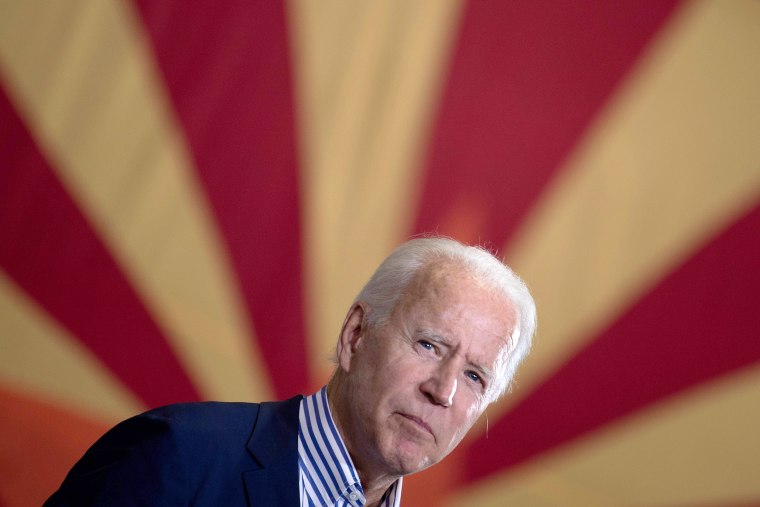The vote tallies in Arizona clearly suggested Joe Biden was likely to prevail in the Grand Canyon State, and as of last night, the race was called for the president-elect.
President-elect Joe Biden has won Arizona, NBC News projects. The state's 11 Electoral College votes bring Biden's lead to 290-217 and put further pressure on President Donald Trump, who has yet to concede the election.
At a certain level, this may not seem especially notable. After all, not only did the vote tallies point in this direction over the last several days, but pre-election forecasts suggested Biden was a slight favorite to win Arizona. What happened is largely in line with what many expected to happen.
But let's not be too quick to overlook just how significant the statewide outcome is.
We now know, for example, that President-elect Biden, if he prevails in Georgia, will end up with 306 electoral votes -- which just so happens to be exact same number of electoral votes Donald Trump earned in 2016. Four years ago, Trump's campaign manager argued that 306 electoral votes constituted a "landslide" and a "blowout" -- and that was with the Republican losing the popular vote by nearly 3 million ballots.
By these metrics, Biden's victory is considerably more impressive.
What's more, Arizona isn't just another red-to-blue flip. We are, after all, talking about one of the nation's most consistently Republican states over the last century. Arizona was home to Barry Goldwater. It fought harder than most in opposition to a Martin Luther King holiday. It made Joe Arpaio famous. It approved a notorious "papers please" law.
What's more, before this year, Arizona had only backed a Democratic presidential ticket once over the last 70 years -- Bill Clinton narrowly carried the state in 1996, but it was a bit of a fluke -- making it an unlikely Democratic target.
And yet, as of this morning, Arizona has not only helped elect the next Democratic president, it's also represented by two Democratic U.S. senators for the first time since the early 1950s.
There are a variety of factors that led to this, and it's worth emphasizing the importance of both Native American voters and Latino support for Democrats in the state. But let's also not overlook the degree to which Donald Trump went out of his way to undermine his own chances.
The outgoing president spent much of his term railing against John McCain, for example, even after the late senator's passing. The McCain name still means something in Arizona, and Trump did himself no favors by needlessly making the late senator one of his favorite enemies.
I also find myself thinking about a New York Times report published early last week: "Some aides said that Mr. Trump had often resisted entreaties from Ronna McDaniel, chairwoman of the Republican National Committee, and Brad Parscale, his former campaign manager, and others to spend more time in Arizona. But they said he had resisted in part because he did not like traveling west and spending the night on the road."
The shift in the political winds in Arizona are likely to have lasting effects on American politics for years, but as Trump lashes out and looks for people to blame for his defeat, he probably ought to look at the man in the mirror.

